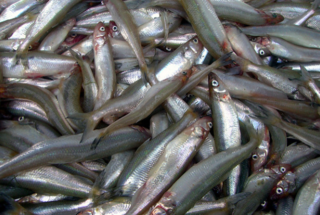Is Fish Oil Beneficial for the Brain?

Tags: USA
Is Fish Oil Beneficial for the Brain? published by Evanvinh
Writer Rating: 5.0000
Posted on 2016-04-18
Writer Description: Evanvinh
This writer has written 733 articles.
By Emily Deans M.D.
One element that distinguishes humans from other primates is the high levels ofomega-3 fatty acids within the brain. These long chain polyunsaturated fats play an important role in the cell membranes of neurons and other cells of the body, increasing permeability and controlling some signaling between cells. Deficiencies in omega-3 in both animals and humans has been shown to be correlated with increased mental healthproblems and even a higher risk of suicide.
Over the years, a lot of research has been done with omega-3s to see if supplements could help with various psychiatric problems from depression to autism to dementia. Anyone following news coverage will see headlines going from boom to bust for omega-3s, "no help” says one study, “strong benefit for depression” says another. How do we make sense of it all?
First a little overview. Omega-3 fatty acids for supplementation come in three major varieties, ALA, EPA, and DHA. It’s a bit of an alphabet soup, but bear with me. ALA is the precursor molecule that can be converted to EPA and DHA in the body, but the rate of conversion is never higher than 20% or so. That means if you take a lot of ALA (found in flax or chia seeds), you end up with a lot of excess omega-3 in your body that may not be particularly useful to the brain. All polyunsaturated fatty acids are delicate, easily made rancid with exposure to oxygen, so having extra omega-3s the body can’t use well may not be the best idea. EPA and DHA, on the other hand, are the fatty acids found in fish oil, and DHA is the major long chain omega-3 fatty acid in the human brain. There is an algae-made vegan DHA supplement that is added to milk and formula that you might have seen in the grocery store.
Fish get EPA and DHA from eating ocean plankton and algae and the like, which led to the common belief that wild caught fish had more omega-3s than farm fed fish (which are often raised on com). However, recent studies show that the omega-3 content of farm-raised and wild fish is roughly equivalent because fish oil is added to many farmed fish diets (don’t think too hard about that one, or the idea of fish eating corn) and farmed fish are generally fattier than wild fish.
The tricky thing about omega-3 supplementation is that even though DHA is the major omega-3 in the brain, DHA supplementation on its own is a total bust. EPA needs to be at least twice as high as DHA in any supplement for there to be a positive effect in depression trials. For this reason I don’t recommend DHA algae products; there’s just no data to show they are helpful. EPA is apparently needed to get the available DHA into the brain, so EPA supplementation is way more important than DHA, which leaves us with fish oil as the best source. And, truth be told, actual fish is probably the best source of all. So we know we need EPA and DHA, but do we need to take little pills that may or may not give you fishy-smelling burps? Read on.
As a guide to our question about the benefit of supplementation for mental health, so far in 2016 two huge overviews of the literature have been published, one in the Naturepublication Translational Psychiatry on omega-3s and depression, and another aCochrane Review of the use of omega-3s in dementia. These reviews speak to the quality of omega-3 data out there; for the Cochrane Review only three studies met the criteria, and while none showed harm, none showed any benefit for cognitive impairment.
The meta-analysis of depression studies looked at over 1900 articles, but only 13 met rigorous criteria for major depressive disorders. Of these, as already known before, only those with high EPA content compared with DHA were effective for major depression. Older studies and papers showing a combination of use with fish oils and a pillantidepressant showed more benefit. The fact that older studies showed more benefit is troubling; in general in science earlier studies do show more benefit as later studies tend to be larger or more rigorous. That said, the meta-analysis did show a benefit of the use of high EPA supplements for major depression and little risk of harm.
Finally, I wanted to mention one of the most interesting and hopeful findings to come out of omega-3 research in the past several years from the Vienna Trial. This study used 1.2 grams of omega-3 (700 mg EPA and 480 mg DHA) supplementation for 12 weeks in teenagers and young adults with ultra high risk for developing psychotic disorders (meaning these teenagers had early signs of developing schizophrenia or bipolar disorderand also had a high genetic probability of getting the disease). After a follow up of 7 years, 10% of the omega-3 group went on to develop a full blown psychotic disorder compared with 40% of the placebo group. While the total number of subjects was small (81), the difference is statistically significant, and the risks of giving someone with high risk of psychosis a fish oil pill for 12 weeks in adolescence seems negligible compared with the possible benefit. This study gives more evidence to the idea of a "critical period" in developing certain psychotic disorders; if you manage to protect the brain during the teenage years and young adulthood with things like avoiding smoking pot and maybe supplementing omega-3s, the genetic risk of developing schizophrenia can perhaps be somewhat averted.
So, overall, it seems that by the time one progresses to dementia, omega-3 is of little benefit, but for depression and especially for possible prevention of psychotic disorders, the use of omega-3 supplementation for a few months could be helpful and is unlikely to hurt. If you are a teenager or young adult with a sibling or parent with schizophrenia or bipolar disorder, it may be well worthwhile to get a bottle of omega-3s and supplement for a few months. I tend to recommend the “spoonful” varieties of omega-3s (like Nordic Naturals) so you can taste any rancidity and discard, rather than pills that may have been sitting in a big box store for years. Side effects of long term supplementation could include increased bleeding and even prostate cancer; and as always, eating fish is probably the best choice. Small fish such as skipjack tuna, anchovies, and sardines are less likely to have contaminants like PCPs and mercury and are generally more sustainable.
My good friend Drew Ramsey is coming out with a new book in May called “Eat Complete.” It’s an amazing and friendly compilation of all the latest research on nutrients and the brain with a ton of terrific recipes, including lots with seafood for the omega-3s. I can’t recommend it enough, available for pre-order (and eventually order) here. My own home tip for getting omega-3s from fish into kids is to hide a can of sardines in a tuna salad. Use 2-3 cans of tuna to 1 can of boneless skinless sardines along with carrots, pickles, parsley, a bit of red onion, celery, and the mayonnaise of your choice (I make my own with light olive oil or avocado oil). The kids won’t notice the omega-3 rich sardines. Happy eating!
Sources: https://www.psychologytoday.com/blog/evolutionary-psychiatry/201604/is-fish-oil-beneficial-the-brain
You have the right to stay anonymous in your comments, share at your own discretion.


